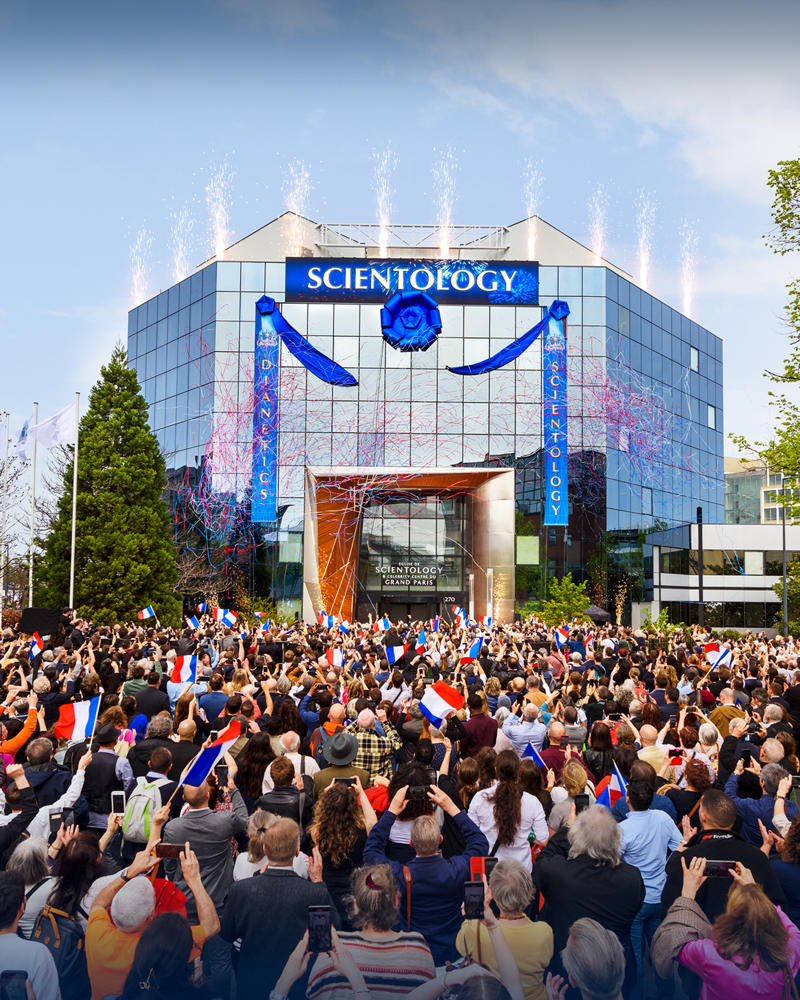How Scientology Impacts Personal Advancement: A Comprehensive Analysis
Wiki Article
Disproving Myths: Dividing Truth From Fiction Concerning Scientology

Beginnings of Scientology
The origins of Scientology trace back to the mid-20th century when L. Ron Hubbard, a science fiction author, started the belief system in the 1950s. Hubbard's advancement of Scientology originated from his earlier self-help system called Dianetics, which he introduced in the 1940s - Scientology. The change from Dianetics to Scientology marked a shift in the direction of an extra comprehensive religious approach that included aspects of psychology, Eastern spiritual traditions, and Hubbard's very own concepts on human existenceHubbard's exploration into the human mind and spirit caused the production of Scientology as a religion centered around the idea of spiritual enlightenment and self-improvement through a process called auditing. Auditing, a form of spiritual counseling, aims to assist individuals get over psychological and psychological obstacles, known as engrams, that impede personal growth and awareness.
As Hubbard's teachings gained popularity, Scientology evolved right into a worldwide movement with a significant following. In spite of criticisms and debates surrounding its practices and ideas, Scientology remains to draw in followers seeking spiritual satisfaction and personal advancement.
Core Beliefs and Practices

One more essential element of Scientology is the idea of the Thetan, the spiritual essence of an individual that transcends the physical body. Fans intend to recognize and reinforce their link to the Thetan with different methods such as research study programs and purification rituals.
The Church of Scientology also places a solid focus on the importance of individual duty and the idea that people have the power to shape their own destinies. Via adherence to moral standards and the quest of self-improvement, experts of Scientology make every effort to accomplish greater degrees of happiness, success, and spiritual satisfaction.
Disputes and Objections
Amidst Scientology's core ideas and methods exists a landscape marked by controversies and objections that have sparked extreme discussion and examination. One of the significant objections leveled against Scientology is its secretive nature and the claimed exploitation of its participants. Previous participants have spoken out about sensation pressured to contribute large amounts of money to the Church and facing rough consequences if they try to leave. Furthermore, Scientology's status as a tax-exempt spiritual organization in some nations has been a factor of opinion, with movie critics arguing that its techniques are much more comparable to an organization than a faith. Scientology.
One more location of controversy surrounds the Church's therapy of movie critics and skeptics. Reports have emerged of harassment, scare tactics, and legal hazards directed at those who speak up versus Scientology. This has actually raised issues regarding Get More Info liberty of speech and the company's dedication to transparency and responsibility.
While Scientology has actually emphatically denied a lot of these accusations, the objections and conflicts bordering the Church remain to fuel public apprehension and scrutiny.
Scientology's Impact in Society
With its existence in various fields of culture, Scientology's influence can be observed in both refined and obvious means, forming assumptions and communications. In the realm of education and learning, the Church of Scientology has actually dealt with examination for its efforts to introduce its teachings right into colleges via programs like "Applied Scholastics." Doubters suggest that such efforts blur the lines between church and state, possibly influencing the instructional experiences of trainees. Moreover, Scientology's influence reaches the realm of psychological wellness, where its sights on psychiatry and psychology have sparked debates within the clinical neighborhood. The church's anti-psychiatry stance has actually brought about skepticism and concerns regarding the efficiency of psychological wellness therapies. In the world of home entertainment, Scientology's association with high-profile stars has actually accentuated the religious beliefs, Scientology both positively and adversely. The participation of well-known numbers in Scientology has, in many cases, served to popularize the faith, while in others, it has attracted criticism and questioned regarding the church's beliefs and techniques.Debunking Common Misconceptions
What misconceptions regarding Scientology are commonly held and how can they be disproved? One usual false impression about Scientology is that it is a cult. Nevertheless, the Church of Scientology is legitimately recognized as a religious beliefs in several countries, including the USA, where it has tax-exempt standing. Like other religions, Scientology supplies spiritual advice and techniques for its members.One more false impression is that Scientology forces its members to cut ties with their families. Actually, the church highlights the value of household partnerships and urges participants to keep healthy and balanced links with their liked ones.

Verdict
In conclusion, it is vital to different fact from fiction when reviewing Scientology. By analyzing its beginnings, core ideas, conflicts, and influence in society, we can disprove usual misunderstandings surrounding this religion. It is essential to approach the topic with a unbiased and important way of thinking in order to recognize Scientology precisely and right.
Rooted in a foundation of spiritual enlightenment and individual development, Scientology's core beliefs and practices encompass a varied variety of principles and routines. Central to Scientology is the idea that people are immortal spiritual beings that have actually neglected their true nature. The participation of popular figures in Scientology has, in some cases, offered to popularize the religion, while in others, it has actually drawn criticism and elevated concerns about the church's techniques and beliefs.
The Church of Scientology is lawfully recognized as a faith in lots of countries, consisting of the United States, where it has tax-exempt status. Like various other official site religious beliefs, Scientology provides spiritual advice and methods for its participants.
Report this wiki page